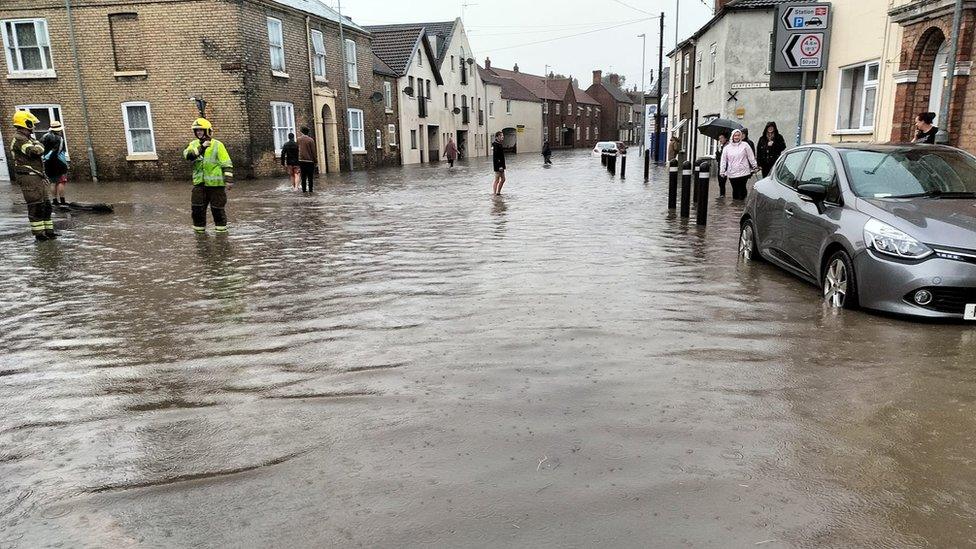In pictures: Flooding across UK this week after heavy rain
- Published
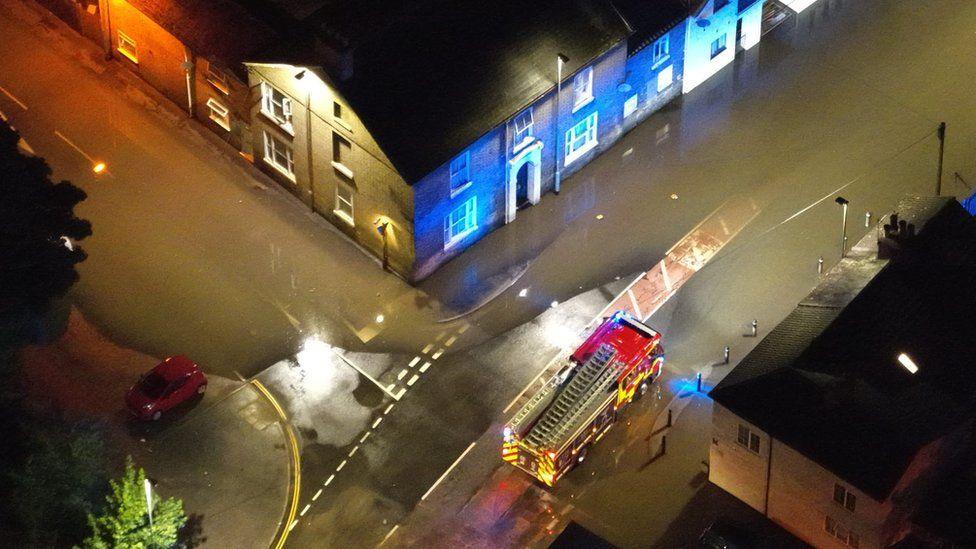
The water was waist-high in Market Rasen, Lincolnshire
Large swathes of the UK have been hit by thunderstorms and flash flooding in recent days, after weeks of hot and dry conditions.
There has been hardly any rainfall this summer, with July declared as the driest since 1935.
That all changed this week when the heavens finally opened, with one town in England experiencing almost twice the monthly average rainfall in a three-hour period.
But heavy downpours will have done little to ease drought conditions seen across much of the UK as it is the "wrong kind" of rain, BBC Weather presenter and forecaster Simon King said.
"The rainfall is not going where it needs to go," he said.
"When you get extreme rainfall - lots of heavy, torrential rain - some areas get huge amounts but other parts just a few miles away get nothing at all.
"The drains cannot cope with that volume of water - they fill up very quickly and they flood.
"What you need is rain in large areas, over a steady period and not as heavy."
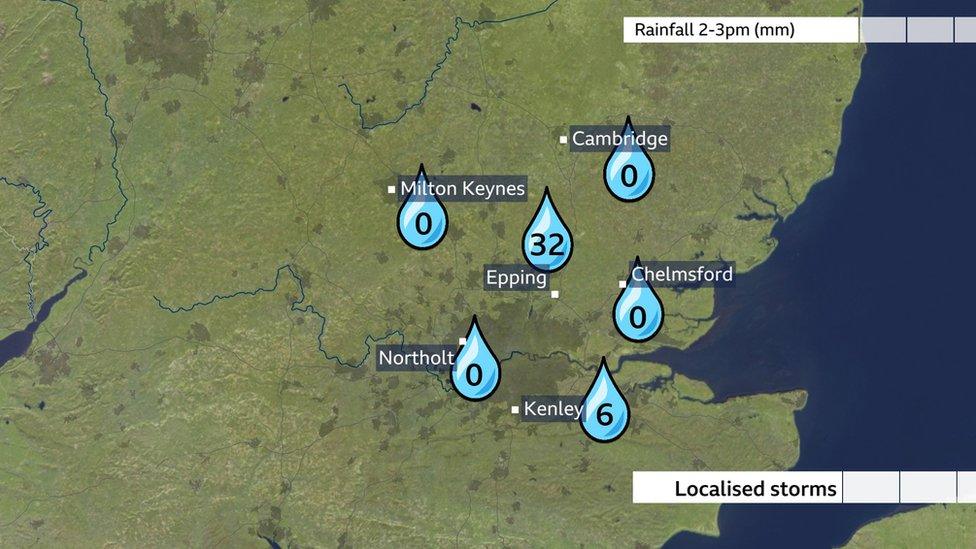
32mm fell in one hour near Epping, but surrounding areas saw no rainfall
Rainwater has also run off the surface of grass patches because of the dry conditions the UK has experienced this summer, the forecaster added.
"It's a classic flash-flood situation," he said.
Is there heavy rain and floods in your area? Upload your pictures/video here if it is safe to do so.
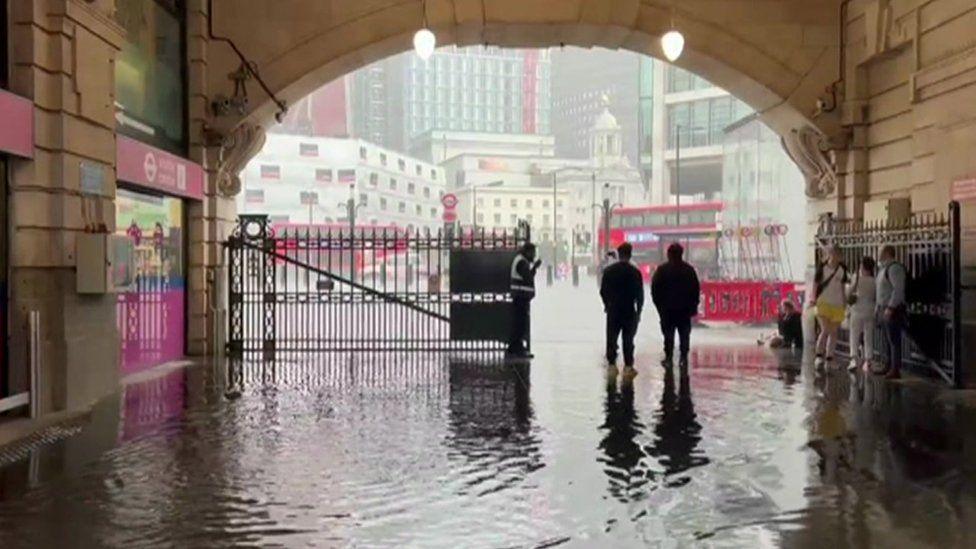
Flooding at the main entrance of Victoria Station on Wednesday afternoon
High Beech in Essex saw the highest rainfall, with 64mm (2.5in) falling in a 24-hour period from Wednesday to Thursday, while Frittenden in Kent had 48mm of rain - 46mm of which fell in the space of just an hour.
Heavy rain in the capital also affected parts of central London, including Bloomsbury, St Pancras station, Victoria and Kentish Town.
Some shops and platforms at Victoria station were forced to close after flooding at the main entrance led to large volumes of water running down a slope towards the eastern concourse.
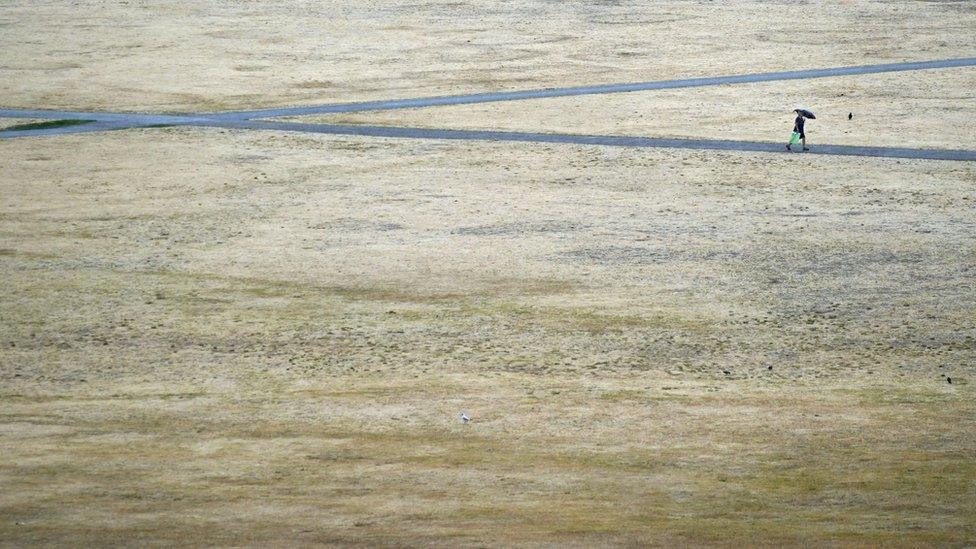
Greenwich Park during Wednesday's downpour

The grass at the park, seen before the rain hit, had completely dried out after weeks of little or no rainfall

Rain delayed play at Lord's Cricket Ground on Wednesday
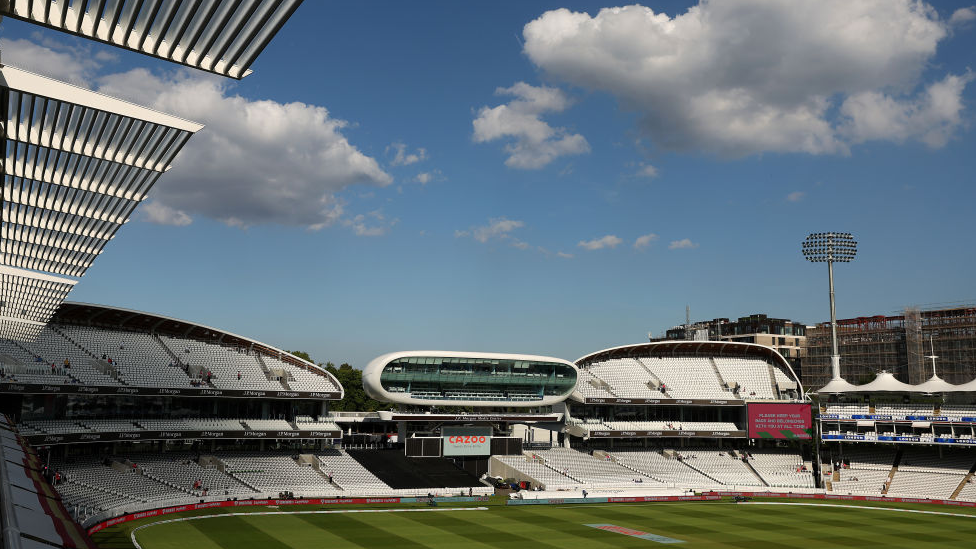
Lord's Cricket Ground pictured earlier this month
Further showers are forecast for the coming days, but it is "nowhere near the rain we need to alleviate the drought situation," Simon King said.
"Exceptionally low" river flows and reservoir levels caused by weeks of dry weather will also not be replenished by this week's rainfall, the Environment Agency added.
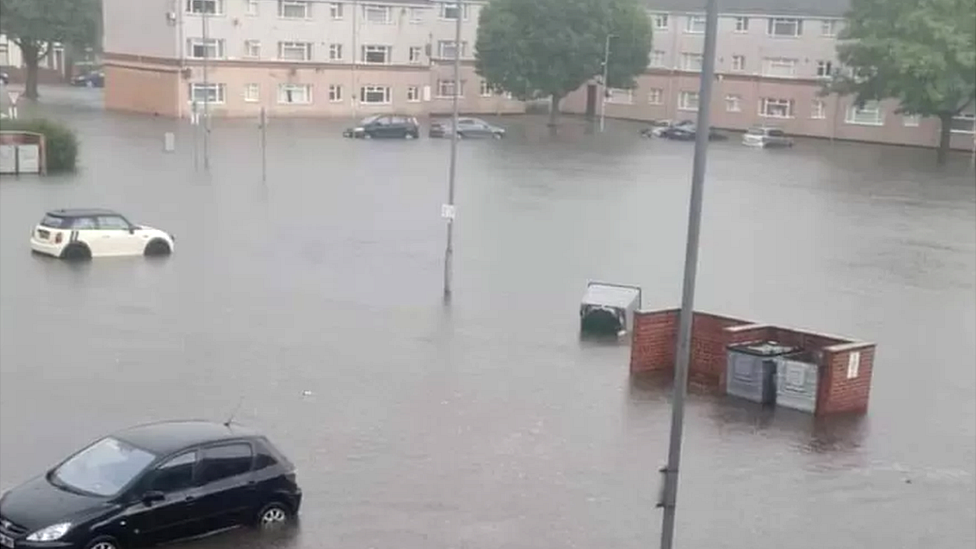
Worksop experienced 93mm of rain between 17:00 and 20:00 BST on Tuesday
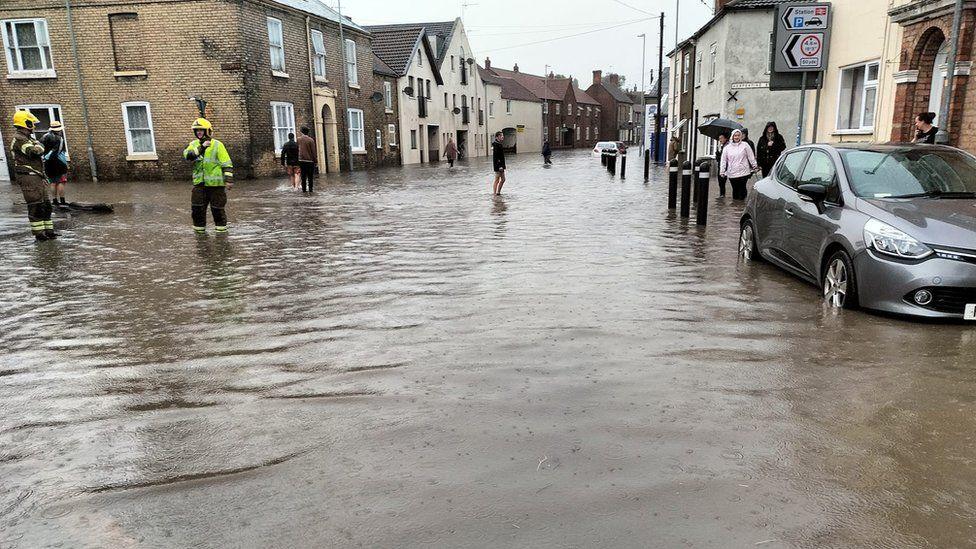
A clean-up operation began on Tuesday in Market Rasen, Lincolnshire
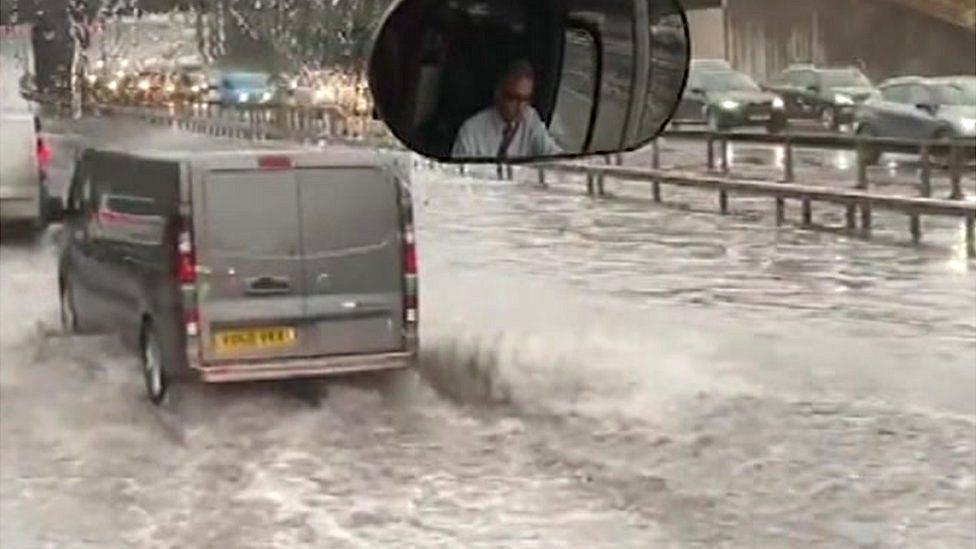
Parts of the M25 were almost impassable on Wednesday
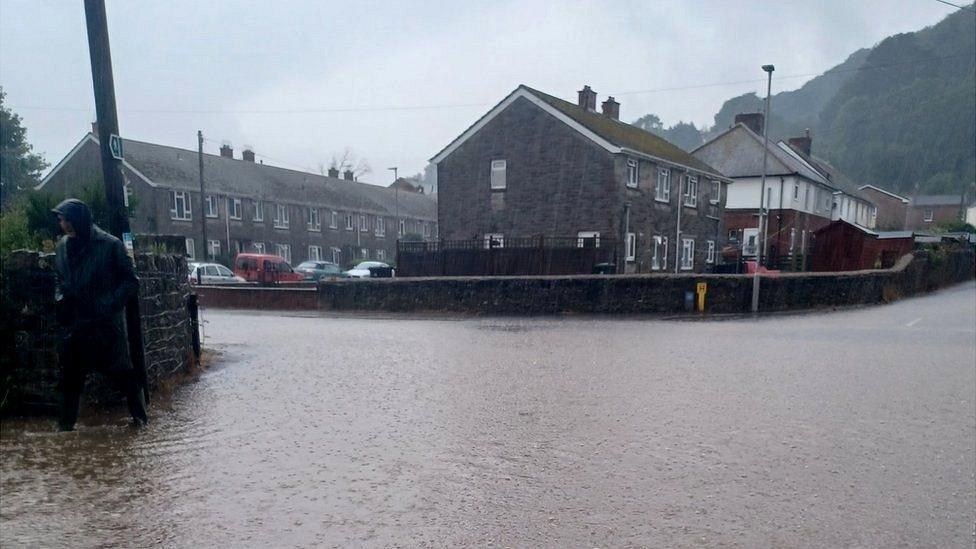
Residential roads were flooded in Port Talbot, Wales
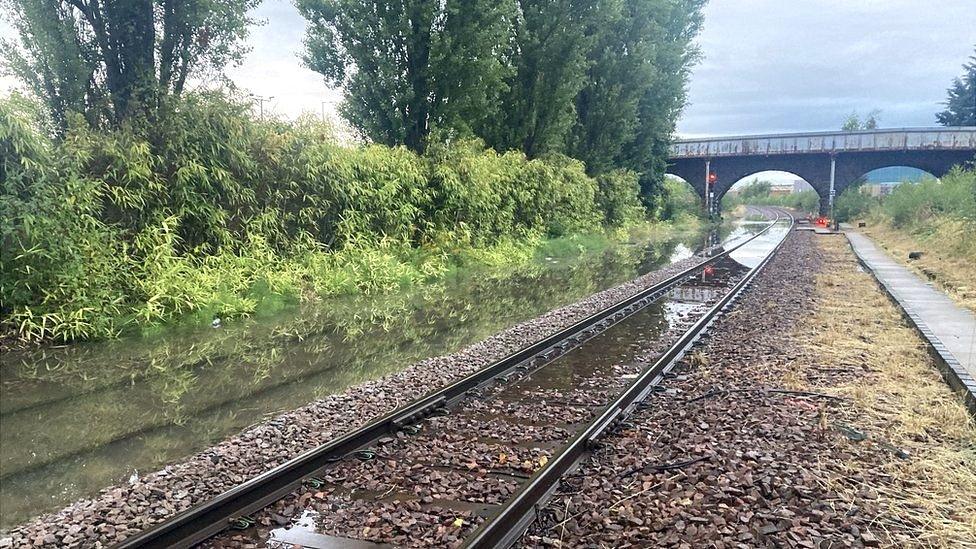
Flooding on the train tracks at Perth in Scotland caused a signalling fault
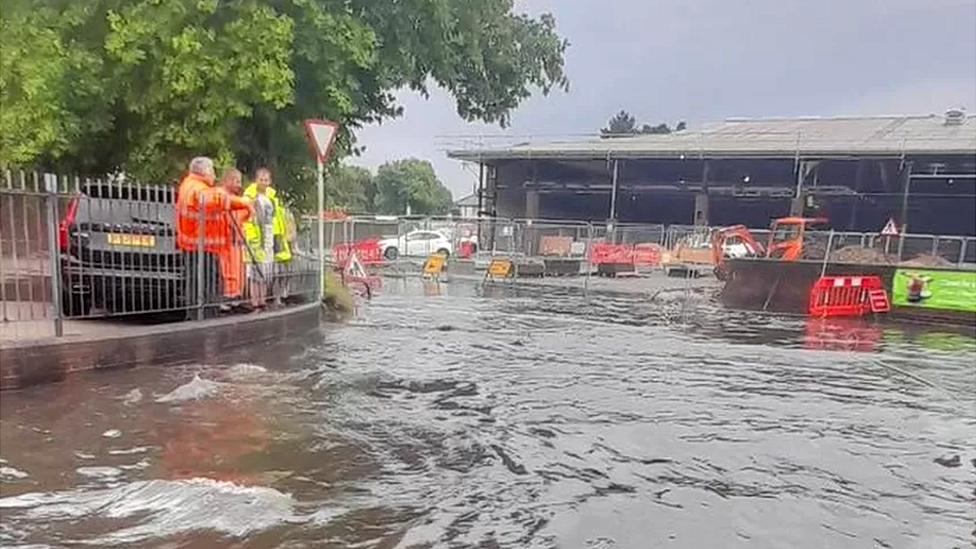
Flash flooding caused a spill of sewage onto roads and car parks in Totton, Hampshire
Related topics
- Published18 August 2022
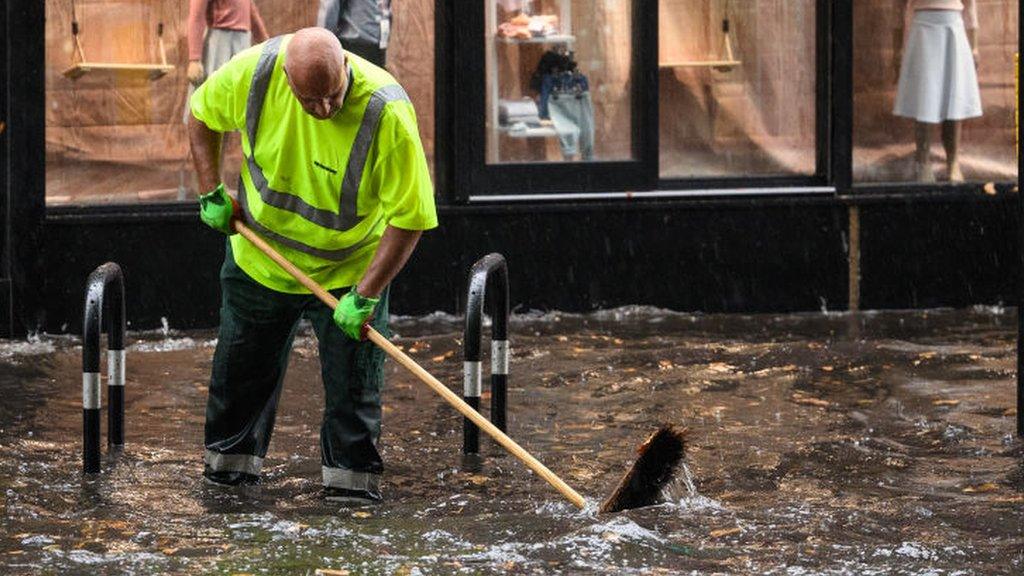
- Published17 August 2022
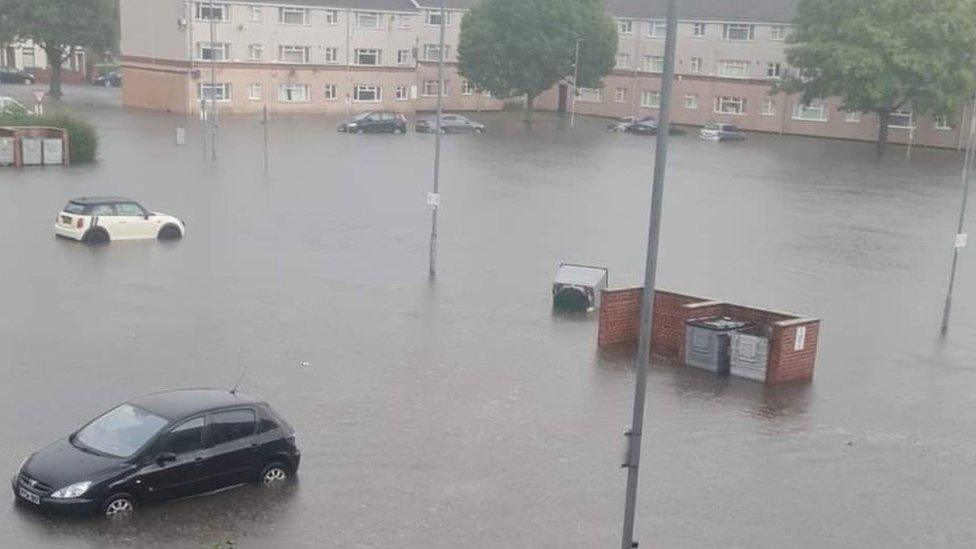
- Published17 August 2022
